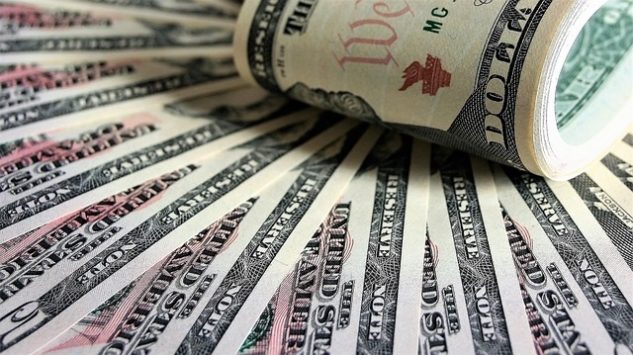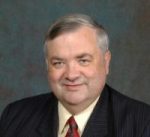Issue Briefs

How can we explain irrational economic decisions?
By Martin Hutchinson
February 7th 2020
Classical economics holds that economic decisions are made by rational decision makers, using solid information and reason. Behavioral economics holds that many economic decisions are based on “cognitive biases” such as an aversion to losses that is stronger than the desire for profits. Richard Robb’s new book “Willful” holds that many decisions are made without rational justification or behavioral motivation, but simply “for-themselves” based on whims or deep-seated irrational beliefs. It’s an interesting, plausible thesis that has implications well beyond investing.
Many decisions taken without any rational foundation
Robb, a former derivatives trader who is now a professor at Columbia University and manages a hedge fund, is highly convincing in his contention that many decisions cannot be explained by either rationality or behavioral biases, but are made for their own sake, either to confirm the decider’s belief system or perhaps on an experimental basis to escape from it. Furthermore, in real-life situations, people change their minds from day to day; such decision-making instability is also “for-itself.” To the extent that a substantial number of decisions are made on this basis, much of classical microeconomics becomes questionable, indeed in many cases indeterminate, since nothing can be said about the motivations for many economic decisions.
Some can beat the market
Robb usefully points out that the Efficient Market Hypothesis, by which it is impossible for investors to “beat the market” is invalidated by the existence of “for-itself” decision-making. Equally he makes the point that the great majority of institutional money invested is governed by “loss-aversion” whereby the investment decision maker is concerned for his livelihood if an unorthodox investment loses money – either a boss or a board of trustees will second-guess any losses that are not backed up by orthodox theory or well within the market’s current intellectual paradigm. Hence individual investors (who generally lack the means to buy many types of investment) or individually-managed hedge funds with full investment discretion are the only investors that, through for-itself decision-making, can achieve above-market returns.
In practice, as the dismal track record of hedge funds over the last decade has demonstrated, they almost always fail to do so. One reason for this is that to beat the market, one must have genuinely superior intellect and powers of analysis, and few are blessed with these. A second is illustrated by Robb himself. After congratulating himself on several modest for-itself investments that made superior returns over a short period of time, he then describes one that didn’t, where he and his partners invested in the Thanet Wind Farm, a large wind-power project at the mouth of the Thames, but were hit by the 2008 financial crisis and only just escaped bankruptcy.
Embracing conventional wisdom
But of course, far from making a purely “for-itself” investment decision, Robb was in that case subject to what Charles Mackay as long ago as 1841 described in “Extraordinary Popular Delusions and the Madness of Crowds.” Two “Extraordinary Popular Delusions,” one that global warming was a serious problem and the second that huge windmill farms were an appropriate way to address Britain’s power needs, caused him to rush with all the other leftist lemmings over a financial cliff.
Like most New York ex-traders, Robb is clearly well networked among his fellow Big City financiers, and therefore subject to the usual fashionable fallacies, so investors in his fund should be aware of this problem. It is indeed possible, because of the “for-itself” decision-making that Robb outlines, for a few truly superior individual investors, without bosses or boards second-guessing them, to beat the market. However, Robb himself may not be one of them. Warren Buffett, it must be remembered, lives in relatively remote Omaha, and has put up a progressively deteriorating investment performance since he became universally networked around 1990.
The role of aggressive marketing is to appeal to emotions
There are however implications beyond the world of investing of Robb’s “for-itself” decision-making. One is in the area of marketing. If all buyers were rationally motivated, as classical economics holds, then marketing would be futile, beyond a simple notice informing of the product’s existence. Funny or emotionally appealing marketing campaigns would have absolutely no effect on rational buyers, who would be undeflected by them from their reason-governed buying decisions.
Behaviorally-conditioned buyers have some susceptibility to marketing, but it is limited. Marketing pitches can attempt to appeal to the behavioral pre-conditioning of a group of buyers, and this can affect their buying decision. However, the marketer will need to know in great detail the behavioral aspects of each buying decision, and to what extent a behavioral appeal can be effective to a large enough group of buyers.
“For itself” buyers, conversely, are highly susceptible to marketing appeals. Since their buying decisions are irrational, and determined largely by whim, a clever, emotionally effective or funny marketing appeal has a high probability of pushing those buyers into the whimsical decision to buy. Marketing’s effectiveness will differ, depending on the cost, the buyers’ susceptibility to marketing appeals, and the purchase frequency and salience of the product being marketed, but in general if the percentage of “for-itself” buyers of a product are high, marketing will be well worth an extensive devotion of resources. This applies at both ends of the scale of product salience to the buyer; since nobody knows the chemical difference between different brands of washing powder, and their purchase is frequent and low-saliency, a clever marketing appeal, causing the large numbers of “for-itself” buyers to act, can be exceptionally effective.
Since expenditure on marketing is immense and increasing at a rapid rate, supporting several tech companies with trillion-dollar market capitalizations, we can conclude that marketers have long ago abandoned the rational decision-maker economic model, and are fully bought into the “for-itself” model, even without having had it expounded to them.
Bureaucratic rule
Another area in which “for-itself” decision-making is a useful concept is public policy. The traditional public policy model is of decisions being made rationally, usually only where they are “Pareto-optimal” (the benefits to the winners exceed the losses to the losers.) Public sector bureaucracies, such as the British and U.S. civil services, and above all the European Union bureaucracy, are set up to achieve this paradigm; checks and balances are built in at every stage so that decisions can be made as rationally as possible.
If bureaucracies rule, decision-making is very sub-optimal. You can see this by the endless over-regulation produced by the EU, and by the often very damaging actions taken by politicians who are in intellectual cahoots with the bureaucrats. Britain’s 34 years of decline after World War II were caused by a political class that did not question the misguided Keynesian policies of the bureaucrats, such as adherence to the Bretton Woods exchange rate regime and maintenance of exchange controls, which left the pound permanently overvalued and greatly hampered British companies doing business internationally.
Cognitive bias is also a poor guide to public policy – think for example of Woodrow Wilson’s Presidential order banning African Americans from many areas of the Federal service; as a southerner of that era, he had no conception of their Constitutional right to fair and equal treatment.
Decisions taken without any rational foundation
“For-itself” decision-making, in which a leader makes decisions without regard to how the bureaucracy will view him, can often produce the greatest leadership. Winston Churchill, for example, saw the menace of Nazism several years before it was obvious to everybody else, and was mocked for his prescience. In history, there are countless other examples of this.
Donald Trump is exceptional as President for the percentage of decisions he takes that are “for-itself.” Few other Presidents have shared this characteristic – Franklin Roosevelt, setting the gold parity daily from his bed is one such example. It produces decisions like the drone attack on the Iranian terrorist general Qassim Suleimani, where conventional opinion believed the operation too risky, but Trump on a “for-itself” basis decided that the effect on Iran and the Middle East in general made it worthwhile.
Gut decisions are refreshing but often wrong
There are defects to Trump’s decision-making in other respects. The depth of his knowledge does not readily lend itself to well-researched rational policy decisions – but that is what a staff is for. More dangerously, his cognitive biases in some areas, notably that of monetary policy, can result in long-lasting and dangerous error.
However, his ability to take “for itself” decisions is unparalleled, certainly since FDR (whose “for-itself” decisions in the economic sphere were mostly unfortunate, however). As in investment, such “for-itself” decisions can potentially change the policy game altogether, producing results far out of proportion to the decision’s apparent importance. For this reason, Trump is certainly an exceptional President, and may have the good fortune to be remembered as an outstanding one.
Robb’s theory of “for-itself” decision making is a useful contribution to economics, albeit mostly through invalidating much of conventional theory. However, it has applications far beyond the economic sphere, as we are seeing in the policy arena today.
The views and opinions expressed in this issue brief are those of the author.
 |
Martin Hutchinson is a GPI Fellow. He was a merchant banker with more than 25 years’ experience before moving into financial journalism. Since October 2000 he has been writing “The Bear’s Lair,” a weekly financial and economic column. He earned his undergraduate degree in mathematics from Trinity College, Cambridge, and an MBA from Harvard Business School. |
This article was originally published on the True Blue Will Never Stain http://www.tbwns.com